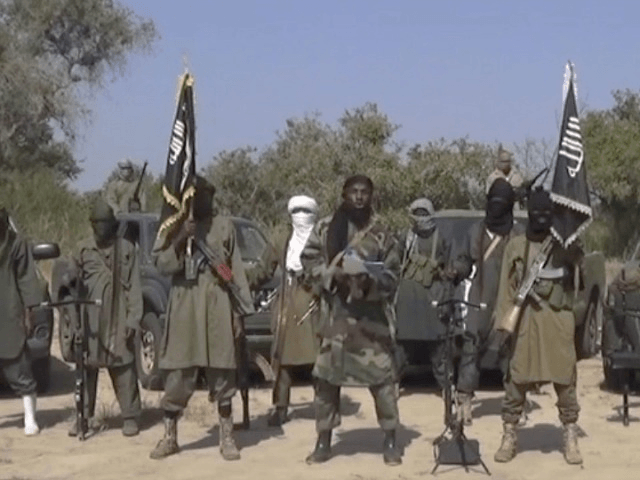Interpol, a global organization linking the world’s law enforcement entities, warned in a report announced Tuesday that global terrorist organizations and “non-state actors” were attempting to take advantage of the chaos surrounding the Chinese coronavirus pandemic to become more influential.
Interpol noted that the full report was “for law enforcement use only,” but in its statement on the report’s completion asserted that the organization had reason to be concerned about the benefits the pandemic may have created for terrorist organizations.
“Early in the pandemic, certain terrorist groups and other NSAs [non-state actors] used the pandemic to reinforce their power and influence, particularly among local populations, or to expand their external financial resources,” Interpol warned. “The report also highlights how the impact of COVID-19 [Chinese coronavirus] on the global economy is likely to indirectly affect funding available to terrorist organizations.”
Interpol stated its report also found reason to believe extreme lockdown measures implemented to prevent the spread of the virus could aid terrorist organizations by triggering “civil unrest.”
“As COVID-19 cases subside in some regions and surge in others, the report underlines the critical need to monitor the reaction and response by terrorist networks, violent extremist groups, and other potentially dangerous NSAs,” Interpol noted.
The Interpol public release on the report bizarrely identified “far-right supporters” in the West as a major cause of concern regarding terrorism exacerbated by the pandemic.
“Law enforcement will continue to face attempts by far-right violent extremists to radicalize social movements, such as clashing with far-left groups and/or provoking the use of force,” Interpol stated.
The Interpol report did not mention radical Islamic terrorist organizations, which ample evidence throughout the year suggests are elevating their influence and profile as civilians lose their basic civil rights in lockdowns. Atop the list of jihadist groups who have become more active during the pandemic is Boko Haram, the Nigerian terrorist organization that Nigerian government officials have insisted for the past five years no longer exists. Boko Haram’s victims have vocally disputed this assessment, particularly after Boko Haram claimed responsibility for the mass kidnapping of hundreds of schoolboys in the latter half of this year.
Nigeria, Cameroon, and Chad began documenting an increase in Boko Haram attacks in April, as regional governments imposed lockdowns forcing civilians to stay home. The jihadists began increasing the frequency of village raids and attacks on schools — “Boko Haram,” which roughly translates to “Western education is a sin” in Hausa, opposes the institution of education outside of jihadist indoctrination. While those attacks mostly occurred in areas where Boko Haram is known to operate, more recent attacks have occurred in states that did not previously document a significant Boko Haram presence.
In December, Boko Haram took responsibility for one of the largest mass abductions of children in Nigerian history – the kidnapping of nearly 700 boys from a school in northern Katsina state. Boko Haram was founded in Borno state, Nigeria’s most northeastern region, and typically operates in Borno and Adamawa state. Katsina is significantly west of Borno, triggering concerns that the terrorist group’s operational abilities have expanded.
Nigerian officials claimed last week that they had successfully liberated the children in question. Reports differ on whether Boko Haram chose to free them independently or if the jihadists received a ransom.
While the Islamic State-affiliated Boko Haram expands its attacks, the core Islamic State group has reportedly also attempted to take advantage of lockdowns to try to rebuild in the Middle East.
“The Islamic State group has been moving the fighting from Syria to Iraq … (and) is strengthening, both financially and militarily,” Lt. Col. Stein Grongstad, head of Norway’s forces in Iraq, told NBC News in May.
A spokesman for the Islamic State, Abu Hamza al-Qurashi, openly celebrated the pandemic in a speech published that month.
“We rejoice today with the great torment of God that befell you,” al-Qurashi said, addressing the non-Muslim world. “A greater punishment will befall you with our hands. What you are seeing today is nothing but indications of major transformations that the Muslim countries will witness in the coming period.”
The most high-profile jihadist attack to occur this year was the beheading of Samuel Paty, a French schoolteacher, on October 16. Paty had recently used illustrations of Muhammad to teach a class on freedom of expression, angering local Muslims in the suburbs of Paris. French law enforcement officials had warned of increased jihadist activity during the nation’s strict coronavirus lockdowns as early as in April.
In Asia, the government of India warned the public in November that the Chinese coronavirus pandemic may allow for increased support of terrorist organizations, accusing neighboring Pakistan of heightening its terrorist operations.
“While the world has come to a standstill due to the pandemic, but [sic] Pakistan has only enhanced support to cross-border terrorism, taking advantage of the pandemic,” Ashish Sharma, an Indian diplomat, told the United Nations General Assembly. “Pakistan has resorted to unbridled hate speech trying to foment violence and intolerance in our country.”
Pakistani officials denied the allegations and have similarly accused India of illicit activity.

COMMENTS
Please let us know if you're having issues with commenting.